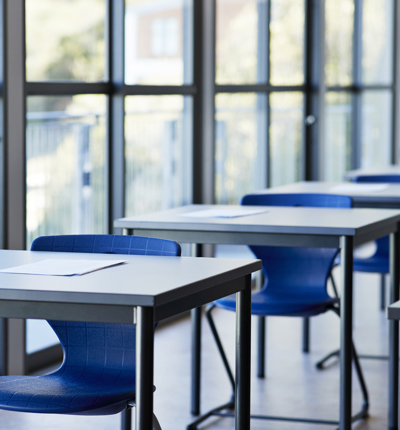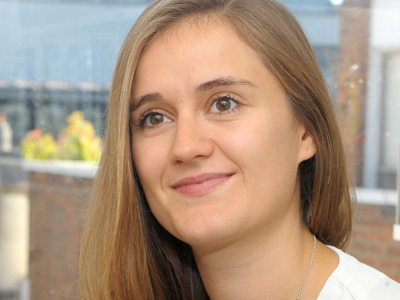
Leigh Day investigates allegations of abuse of special education needs pupils at Whitefield School
Leigh Day’s abuse team is investigating claims under the Human Rights Act and breaches of duty of care following alleged abuse suffered by pupils of Whitefield School in Walthamstow, North London, including the alleged unnecessary use of seclusion rooms against children with additional needs.
Posted on 28 November 2024
The school educates children aged three to 19 with a broad range of Special Education Needs (SEN). Its website writes of its ‘international reputation in special education expertise’. It has academy status and is owned and operated by Flourish Learning Trust.
Earlier this year, senior associate solicitor Catriona Rubens was contacted by a number of families whose loved ones attended Whitefield School and is investigating legal action for the alleged misuse of restrictive practices including seclusion and restraint.
A new BBC documentary, The School Prison Cells shows leaked CCTV footage relevant to one of the core allegations. It is that children were repeatedly locked in a “calming room” on school premises to control their behaviour, without their parents’ knowledge.
Affected parents say that when they were told about the calming room, they imagined it to be a sensory room; a safe space to allow their child to re-regulate.
Instead, they found the rooms were small (3m x 3m) with padded floors and walls. Parents say they discovered their child was locked in from the outside, behind a heavy door with a small wicket, similar to a police cell with no access to water or toilet facilities. Allegations include children being locked in the room alone for up to four hours and being forced to urinate over themselves after they were denied access to a bathroom.
Catriona Rubens represents David Gloria who is autistic and has ADHD and OCD. His family say he was subject to extensive use of the calming room(s). David’s father Ricardo Gloria is a Metropolitan Police officer who, after viewing the calming room on CCTV described it as ‘even worse than a cell’. In April, Ricardo spoke to the BBC about his son David’s experiences.
Leigh Day has since been instructed by a number of other families.
In 2021, a Metropolitan Police and local authority investigation was launched into “organised abuse” after CCTV came to light which showed apparent assault and neglect of vulnerable children at Whitefield School. This investigation has now concluded, and the Crown Prosecution Service did not recommend prosecutions.
Six staff members were proven to have abused 39 children at the school. None of these teachers were fired, and at least one referral to the DBS was recommended but not made.
In January 2017, OFSTED rated Whitefield School ‘inadequate’ on the basis that:
- Safeguarding is not effective because leaders and governors are unable to demonstrate that the use of secure rooms is appropriate, effective or proportionate to the needs of the pupils being placed in them.
- A small number of pupils are repeatedly placed in a secure room with a locked door when staff are unable to manage their behaviour by other means.
- OFSTED rated the effectiveness of the school’s leadership and management ‘inadequate’ finding that:
- There is little evidence to demonstrate that the rooms are having a positive effect on the behaviour of pupils.
- Leaders were unable to show how parents and other professionals were made aware that pupils had been placed in a secure room.
Catriona Rubens is investigating claims for damages and human rights breaches on behalf of the families of a number of pupils, for the misuse of restrictive practices against former pupils:
- Article 3 – the right not to be subjected to inhuman and degrading treatment
- Article 5 – the right not to be unlawfully deprived of your liberty
- Article 8 – the right to a private and family life, and to physical and psychological integrity.
She is also investigating claims of breach of duty of care and trespass to the person - for assault and false imprisonment.
She is keen to speak to anyone else who has information.
Catriona Rubens said:
“The alleged use of “calming rooms” at Whitefield School raises very serious concerns about the school’s compliance with its human rights obligations towards vulnerable children who were already in a state of anxiety or distress.
“It is more than a year since the Department for Education’s consultation on the use of reasonable force and restrictive practices in schools, and no progress has been made by government to reform to protect children like David and those featured in this new documentary. Urgent legislative change is needed now to stop children being locked in so called “calming” or seclusion rooms.”
Alison Millar, a partner of Leigh Day’s human rights department said:
“Cases like this are a reason why we set up a dedicated abuse claims team over 10 years ago. Restrictive practices like those being used at Whitefield School, as exposed by the BBC, should have no place in the education of vulnerable children with SEN.
“Anyone who would like to share information about Whitefield School, or who seeks legal advice for their child, can contact Alison via email amillar@leighday.co.uk or on 020 7650 1223, or paralegal Stella Bennett at sbennett@leighday.co.uk or on 020 7650 1327.”
This article was originally posted 9 May 2024 and has been updated to reflect further developments in the investigation.

Landmark legal claim settled on behalf of mother and her son who suffered regime of abuse at Veilstone House in Devon
A landmark legal claim settlement has been achieved on behalf of a mother and her son who was subjected to a regime of abuse and harm at a care home called Veilstone in Devon.



